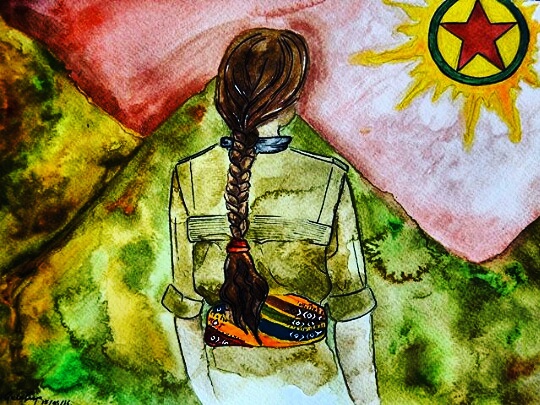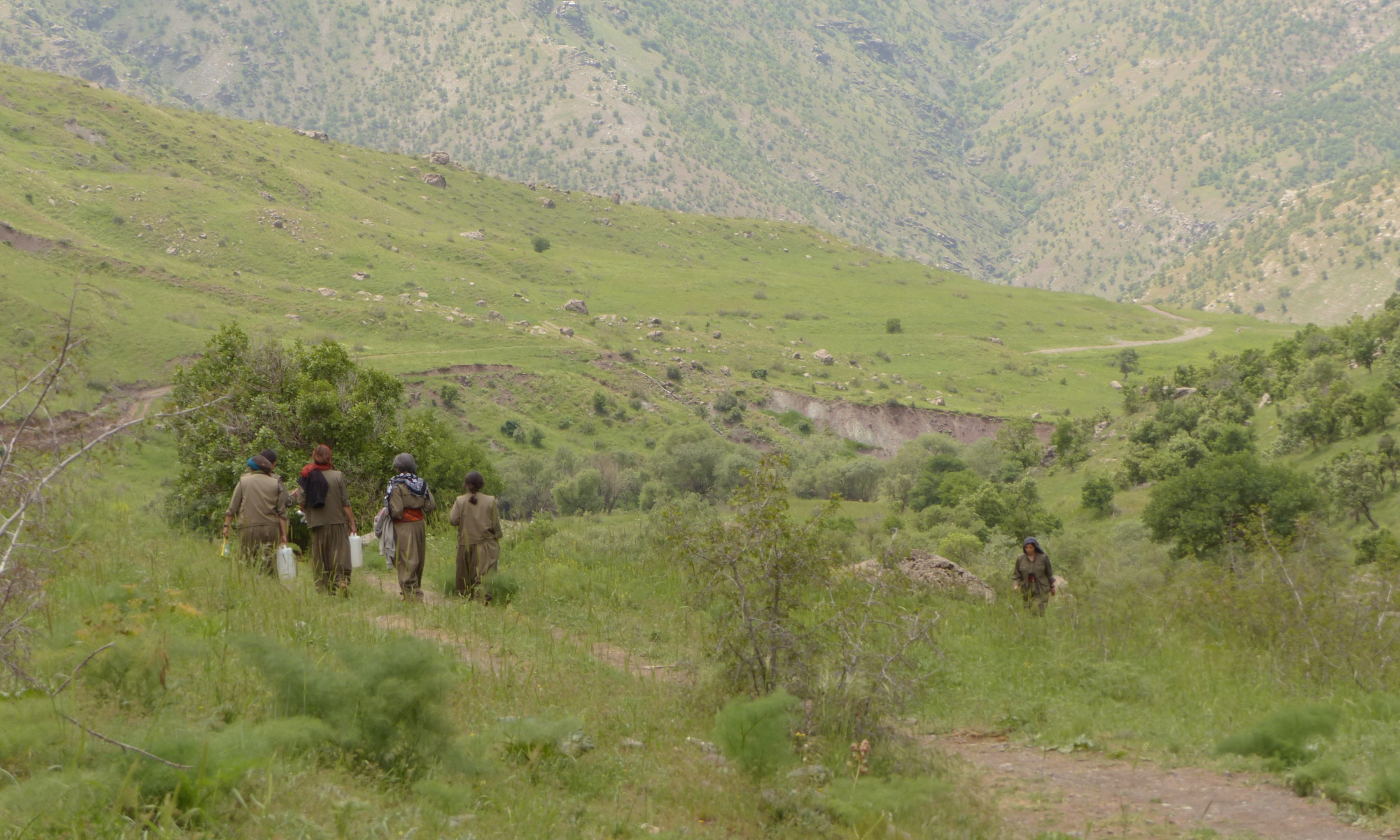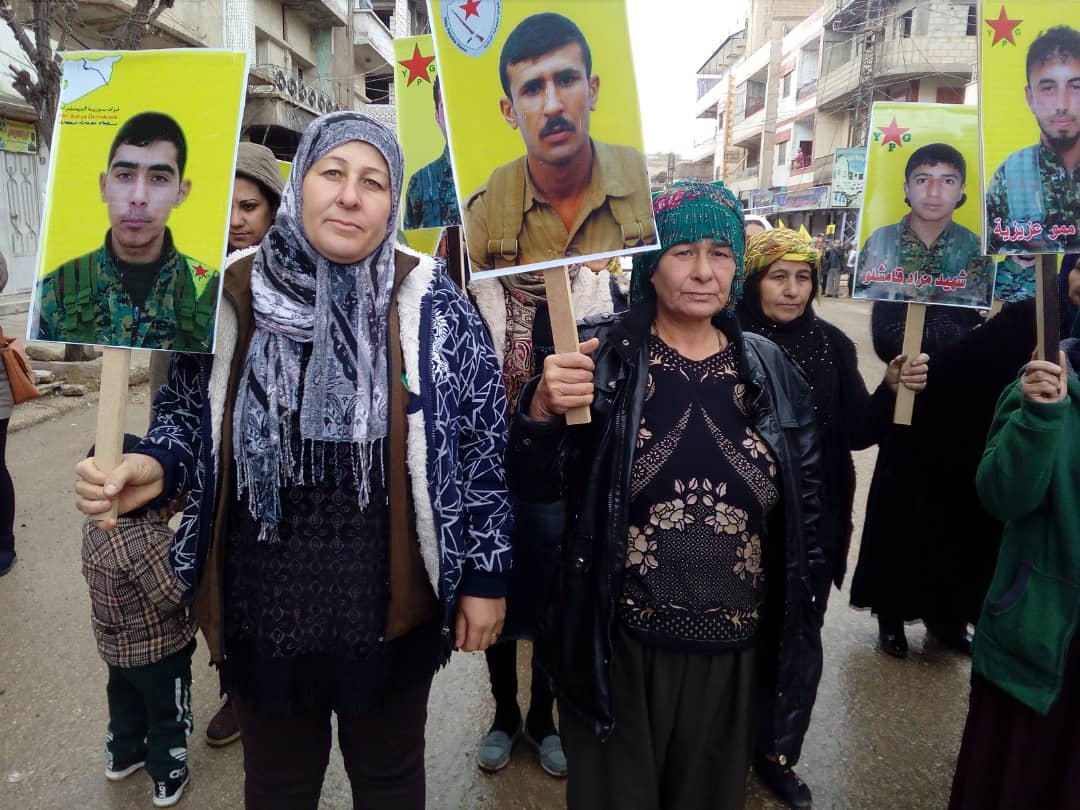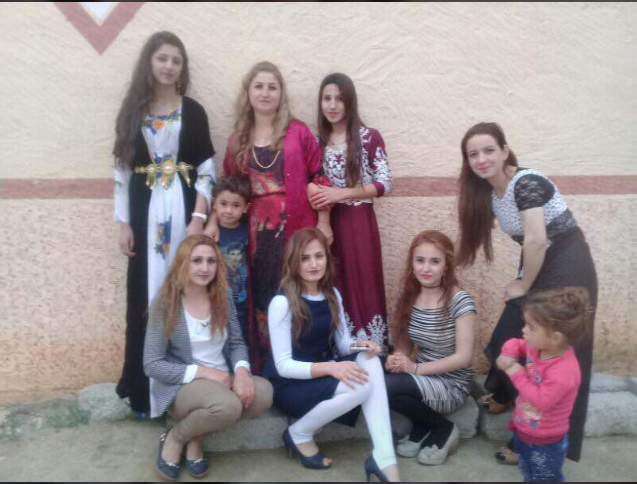
Kurdish YPJ female fighters: the most progressive feminists of the present-day
Meral Duzgun
15 May 2017
As a young woman of Kurdish origin, I believe it’s almost impossible not to be political. As Maya Angelou rightly said: “If you’re not angry, you’re not paying attention.” At the centre of my understanding of the Kurdish struggle is the Kurdish Women’s Protection Units (Kurdish: Yekîneyên Parastina Jinê), also commonly known as the YPJ.
To give some context: approximately 30 million Kurds live in Turkey, Iraq, Iran, Syria and Armenia. The Kurdish people to this day remain the largest ethnic group not to have gained their own permanent nation-state: a people without a land. Many of us who have lived under Turkish rule; which previously forbade us to speak, write or learn our language, have over time identified as Turkish-Kurdish. However, the feeling of being in cultural limbo in a nation which seems obsessed with patriarchal values and extreme nationalism, can eventually strip people of their Kurdish identity. Frankly, it is much simpler to just be a Turk. For this reason, today in the UK you’ll find large populations of Turkish-speaking Kurds who when asked the dreaded question: “So where are you from?” will end up explaining the entire history of the Kurdish struggle.
The Partiya Karkeren Kurdistan (PKK) contains one of the largest contingents of armed women militants in the world. The group was established in the late 1970s, during which time it waged an armed struggle against the Turkish state for equal rights and self-determination for the Kurds; who make up 15% to 20% of the Turkish population.
Under the Turkish state Kurds have received harsh, dehumanising treatment. This has included: the banning of Kurdish names and costume, the restriction of the use of the Kurdish language, prejudice against the Alevi faith practiced by many Kurds, and even the denial of the existence of a Kurdish ethnic identity.
Political views of the PKK differ considerably. The party is listed as a terrorist organisation by Turkey, the EU and the US, however the United Nations and countries such as Switzerland, China, India, Russia and Egypt do not deem the PKK as such. The party is widely considered by many Kurds in Turkey as well as those living in Iraq, Iran, Syria and abroad, as revolutionary. This is a view which has become more widespread since the PKK’s active role in battling against ISIS and fighting to protect the Yazidi people during the 2014 massacre in the Iraqi town of Sinjar. Despite these contrasting stances, one clear fact is that the advocacy of women’s rights on the grounds of political, social and economic equality, plays a central role in the PKK’s movement. The YPJ Women’s Protection Unit is evidence of this. Many Kurdish women have gained a sense of secured identity through the Kurdish women’s struggle through joining and supporting this guerrilla movement. In doing so, Kurdish women fighters have subverted traditional gender roles and stereotypes; representing the woman as a fighter, a soldier, a protector, a woman in war – roles more traditionally and culturally associated with masculinity.
The PKK movement rejects the idea of the State, and regards gender inequality as something which must be addressed within its “Women’s Liberation Ideology”. It promotes the term Jineology which is used to fill the gaps that the current social sciences are incapable of doing:
“Jineology is built on the principle that without the freedom of women within society and without a real consciousness surrounding women, no society can call itself free”.
As is the case for many stateless women worldwide, Kurdish women are left socio-economically and politically vulnerable in Turkey; very often becoming survivors of rape and torture. These are specifically gendered weapons of a patriarchal state and have been used in conflicts in Turkey, Colombia, Iraq, Sudan and Chechnya; societies and governments premised upon the superiority of men. In this context, it is conceivable why many Kurdish women choose to join the YPJ. The reality of living in accordance to degrading and constricting gender roles doesn’t lead towards any sense of liberation. However, the Kurdish Movement, through its acknowledgement of the prejudices women face, and its conceptualisation that a nation-state is unable to offer women full equality, is a movement seen to offer a possibility of freedom.
The Kurdish Movement under the YPJ asserts that radical measures are needed to attain sexual equality for women and the dismantling of patriarchal gender constructs. This includes the use of physical defences and arms to defend their communities, and their political and ideological beliefs. This course of action is often interpreted as “extreme”, but wartime, uprisings and social unrest can provide women with the space to assert themselves and demand representation in ways that “normal”, civilian life would not permit.
The Kurdish Movement demonstrates that the consciousness of these women is very much alive and active, and demonstrates a serious challenge to patriarchal culture. The political beliefs held by YPJ female combatants is consistently foregrounded within the Kurdish Movement. For example, in Turkey 40% of the representatives of the Kurdish HDP political party are women. The strength of the Kurdish women’s movement and the ideology which promotes it has also lead to the establishment of structures such as co-presidency (one woman and one man sharing the chair), and 50-50 gender splits in committees on all administrative levels within the HDP party.
These developments are clearly a threat to the status quo, and almost all HDP party members are currently imprisoned in Turkey. Many YPJ female fighters, and practically all Kurds are identified as terrorists by the ruling AKP government who have shut down every Kurdish media outlet in Turkey. The recent referendum vote in the country pushing for Turkish President Erdogan to have heightened powers, signals a bleak future of autocracy over democracy in Turkey, which indicates a society and country with even more division and misogyny. In 2015, Kurdish female fighter Ekin Van was killed, stripped naked, and dragged through town by a rope around her neck. Images of the ordeal were shared online by Turkish special forces. It is worth considering that this act of violence took place in a country where the current dictatorial government recently backed a bill clearing men of statutory rape if they marry their victim.
The Kurdish women’s movement has provided women around the world with a blueprint for advocating progressive and active feminism, through the implementation of Jineology. Without the liberation of women within society, no society can call itself free. “Jin, jiyan, azadi!” you’ll hear the Kurdish people shout. “Women, life, freedom!”.

Britain’s policing was built on racism. Abolition is unavoidable

How Pakistan’s Khwaja Sira and transgender communities are fearing and fighting for their futures

Their anti-rape performance went viral globally. Now what?





